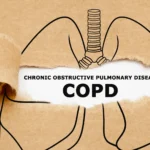The Importance of Gastrointestinal Health
Our digestive system plays a vital role in our overall well-being. It is responsible for breaking down the food we consume, extracting essential nutrients, and eliminating waste from our bodies. When our gastrointestinal (GI) tract is not functioning properly, it can lead to various digestive disorders and impact our overall gut health.
Understanding Digestive Disorders
Digestive disorders refer to a wide range of conditions that affect the GI tract. These disorders can cause discomfort, pain, and disruption in the normal functioning of the digestive system. Some common digestive disorders include:
- Acid reflux: Also known as gastroesophageal reflux disease (GERD), acid reflux occurs when stomach acid flows back into the esophagus, causing heartburn and irritation.
- Peptic ulcers: These are open sores that develop on the lining of the stomach or the upper part of the small intestine. They can cause abdominal pain, bloating, and indigestion.
- Irritable bowel syndrome (IBS): IBS is a chronic disorder that affects the large intestine. It can cause abdominal pain, bloating, constipation, and diarrhea.
- Celiac disease: This autoimmune disorder is triggered by the consumption of gluten, a protein found in wheat, barley, and rye. It can lead to damage in the small intestine and result in digestive issues.
- Inflammatory bowel disease (IBD): IBD refers to chronic inflammation of the digestive tract. It includes conditions such as Crohn’s disease and ulcerative colitis, which can cause severe abdominal pain, diarrhea, and weight loss.
The Link Between Digestive Disorders and Gut Health
Our gut health is closely intertwined with the presence of digestive disorders. The gut, also known as the gastrointestinal tract, is home to trillions of microorganisms, collectively known as the gut microbiota. These microbes play a crucial role in digestion, nutrient absorption, and overall immune function.
When the balance of beneficial and harmful bacteria in the gut is disrupted, it can lead to an imbalance in the gut microbiota, known as dysbiosis. This dysbiosis has been linked to the development of various digestive disorders. For example, studies have shown a correlation between an imbalance in gut bacteria and conditions such as IBS and inflammatory bowel disease.
Furthermore, the gut microbiota is involved in the production of neurotransmitters, such as serotonin, which plays a crucial role in regulating mood and emotions. This connection between the gut and the brain is known as the gut-brain axis. Disruptions in the gut microbiota have been associated with mental health conditions, including anxiety and depression.
Improving Gut Health and Preventing Digestive Disorders
Maintaining a healthy gut is essential for preventing digestive disorders and promoting overall well-being. Here are some strategies to improve gut health:
- Eat a balanced diet: Include a variety of fruits, vegetables, whole grains, lean proteins, and healthy fats in your diet. These provide essential nutrients and support a diverse gut microbiota.
- Stay hydrated: Drink an adequate amount of water throughout the day to support digestion and prevent constipation.
- Manage stress: Chronic stress can disrupt the gut microbiota. Engage in stress-reducing activities such as exercise, meditation, or spending time with loved ones.
- Avoid trigger foods: Identify and avoid foods that trigger digestive symptoms, such as spicy foods, caffeine, or high-fat meals.
- Get regular exercise: Physical activity promotes healthy digestion and helps maintain a healthy weight.
- Practice good hygiene: Wash your hands regularly to prevent the spread of harmful bacteria that can cause digestive infections.
When to Seek Medical Advice
If you are experiencing persistent or severe digestive symptoms, it is important to seek medical advice. A healthcare professional can evaluate your symptoms, perform necessary tests, and provide appropriate treatment options.
Remember, maintaining a healthy gut is essential for overall well-being. By prioritizing your gastrointestinal health, you can reduce the risk of digestive disorders and enjoy a happier, healthier life.


No Comments
Leave a comment Cancel